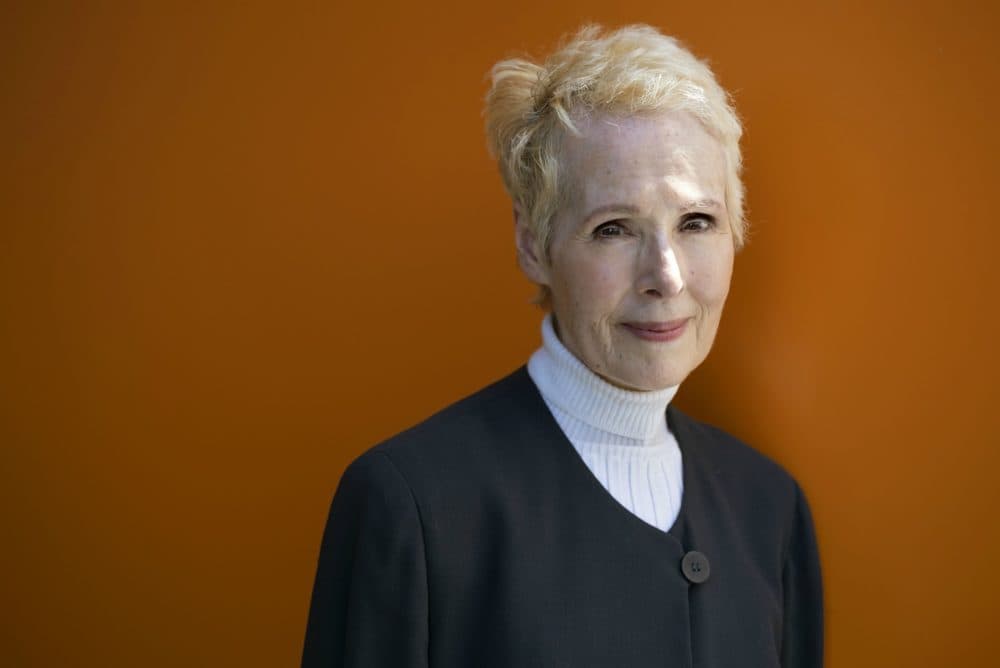Advertisement
Commentary
The Way It Is For Men In Power

How is it that when E. Jean Carroll made a credible report of rape by Donald Trump, the nation mostly yawned? Why is it that after Christine Blasey Ford described her experience of sexual assault by Brett Kavanaugh, the U.S. Senate still confirmed him for a seat on the Supreme Court?
It is because in the United States, unfortunately, if a powerful white male is not caught in flagrante, he is deemed innocent enough to “tough it out.” If he denies the allegations through enough news cycles, eventually the camera will turn away. Yes, there are exceptions. (Will Harvey Weinstein go to jail?) But usually, the standard holds.
The country has yet to challenge sexual assault against women in a serious and meaningful way. #MeToo is an excellent and crucial movement. But it is like a small bird that landed on the tip of a vast iceberg. While that bird may fly further south, that iceberg drifts north.
#MeToo is an excellent and crucial movement. But it is like a small bird that landed on the tip of a vast iceberg.
If we meaningfully addressed sexual assault, nearly one-fourth of our female undergraduates wouldn't get raped or sexually assaulted. Sexual assault on women in uniform wouldn't have surged almost 50 percent in the last three years.
To understand our real situation, we only have to remember Donald Trump’s female guests at the second presidential debate with Hillary Clinton in 2016: Juanita Broaddrick, Paula Jones and Kathleen Wiley.
In 1999, Juanita Broaddrick accused Bill Clinton of having raped her in 1978, when she was working as a volunteer on his first gubernatorial campaign. Jones and Wiley accused Clinton of sexual assault.
Watching the debate live, I remember being deeply disturbed by Trump’s tactic. I also recognized that in its own evil way, it was brilliant. On a brute level, Trump simply opened the Mafioso/Godfather playbook, and followed its instructions for intimidating enemies with non-verbal cues. (The bloody horse’s head in the bed.)
A man unable to open his mouth without lying used an ugly gesture to tell a societal truth.
But throwing his opponent off balance was a fraction of what the gesture accomplished. What chilled me that evening, and has haunted me since, is the appallingly effective psychological and moral meta-messages Trump broadcast to all who watched the debates — and to the nation.
Without words, Trump called both the Clintons and the Democrats hypocrites: Neither Hillary nor the party ever reckoned with Clinton’s sexual assaults. The Democrat's so-called morality was partisan, and he wasn't going to be held to a higher standard than Clinton.
Without words, he said: “I may be hiding and denying my sexual crimes, but Hillary has never divorced – or publicly called out — a man likely guilty of similar crimes," Trump was saying. "So if she found it acceptable in her husband, why should my behavior count against me?”
"This is how it is with men in power," Trump signaled. "We all do what we want sexually. We protect each other or have underlings protect us. Our wives protect us, too. That’s just how it is.”
A man unable to open his mouth without lying used an ugly gesture to tell a societal truth. It empowered him, and it inoculated — or re-inoculated — him, and many of his peers. Hillary, competent in so many ways, was paralyzed — as he intuited she would be — by her own public disavowal of her marital reality.
Sexual assault (of all sorts, even if here we focus on assault by men against women) is ubiquitous in the United States and the world, and thanks to the overwhelming power of patriarchy, it only gets bits of grudging attention from institutions and jurisprudence systems under limited circumstances.
There are many brave, outspoken women. And there may be a time when women will have enough elected positions, enough collective resolve, enough real political power, to seriously challenge our culture of sexual assault. There may be a time when people of all genders unite and say “No more!” But we’d be deceived if we believed that moment is now.
